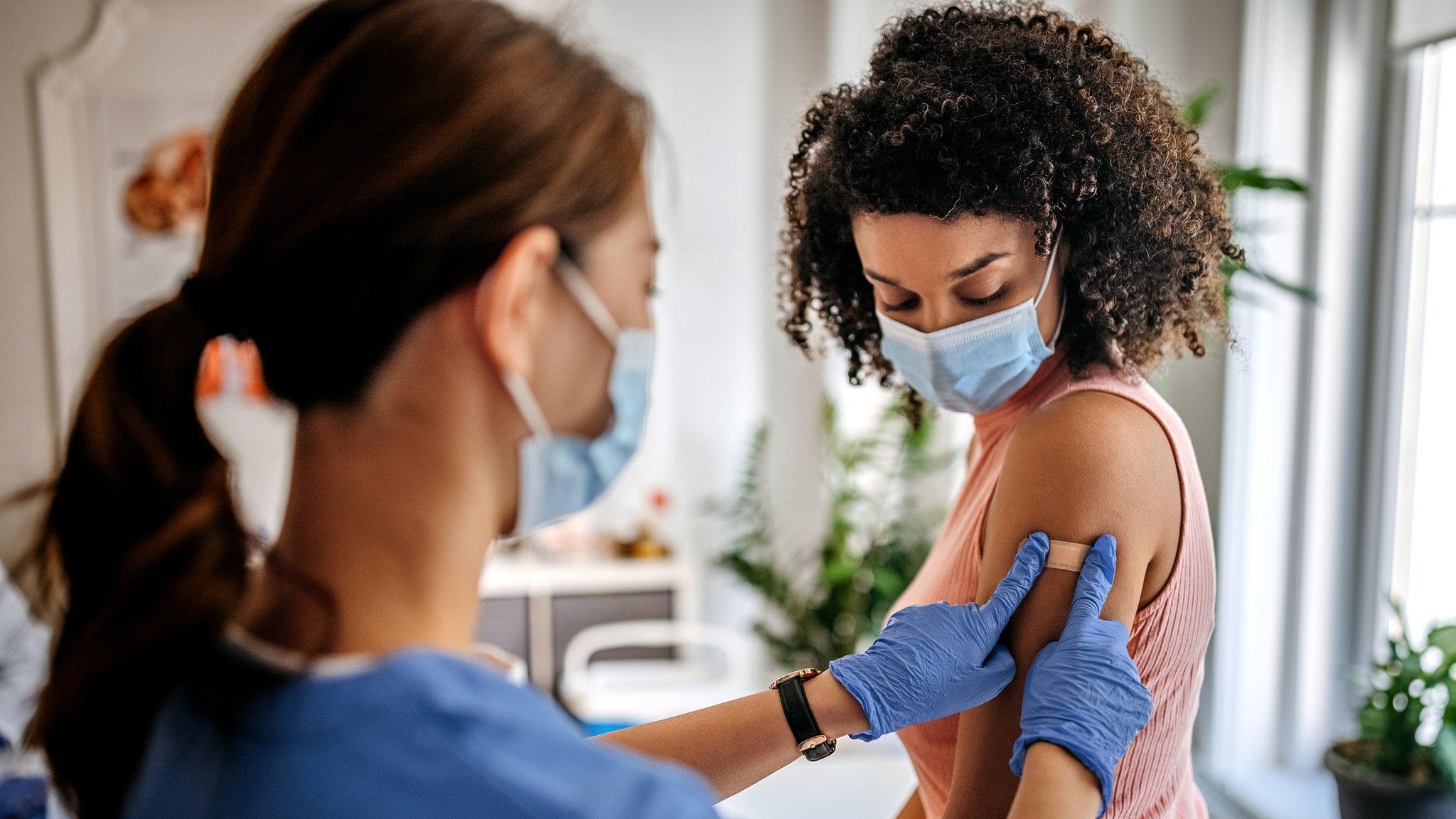HPV vaccination rates decline among South East schoolchildren
- Published
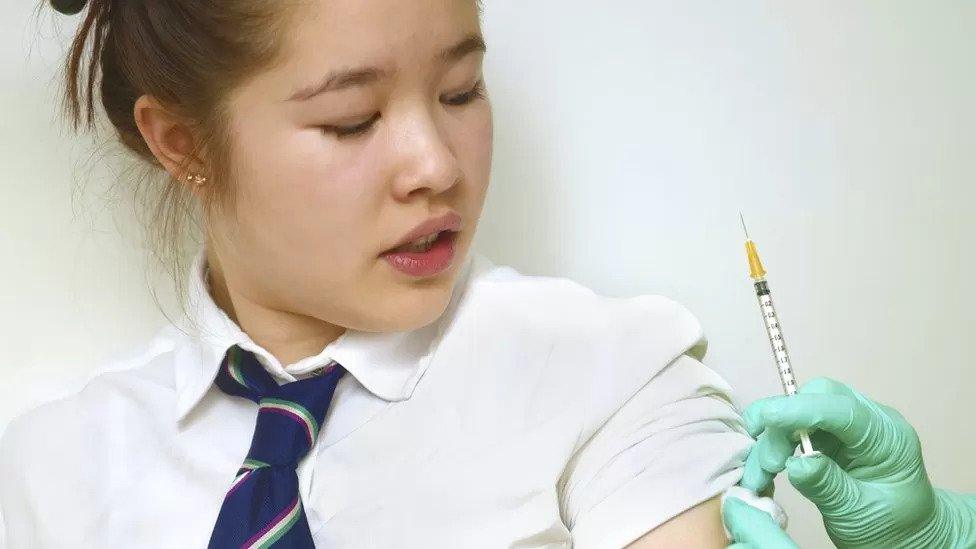
The uptake of the HPV vaccine among schoolchildren in the South East has declined
The uptake of a vaccine against cervical cancer has fallen from pre-pandemic levels among schoolchildren in the South East, figures show.
In 2019, 75% of Year 9 girls in East Sussex received the human papillomavirus (HPV) vaccine.
By 2022, that figure had dropped to 62%.
Jo's Cervical Cancer Trust said the decline was "worrying", with research showing the vaccination can reduce rates of cervical cancer by nearly 90%.
Girls and boys aged between 12 and 14 are offered free HPV jabs at school during Year 8 and 9.
In 2019, 82% of Year 9 girls in Kent and 82% in Surrey received the vaccine. By 2022, these figures had dropped to 76% and 77% respectively.

What is HPV?
HPV is a common virus that eight in ten people will get, which infects the skin and any moist membrane, such as the cervix.
It usually goes away without causing any problems, but about 13 HPV types are linked to cancer.
There is no treatment for HPV itself, but there are for conditions caused by the virus, including cervical cell changes and cancer.
Source: Jo's Cervical Cancer Trust

Head of policy at Jo's Cervical Cancer Trust, Kate Sanger, said school closures, staff absences and vaccine hesitancy were reasons for the decrease in children opting for the jab.
"It's really worrying because we have a vaccination that can literally stop cancer from developing," she said.
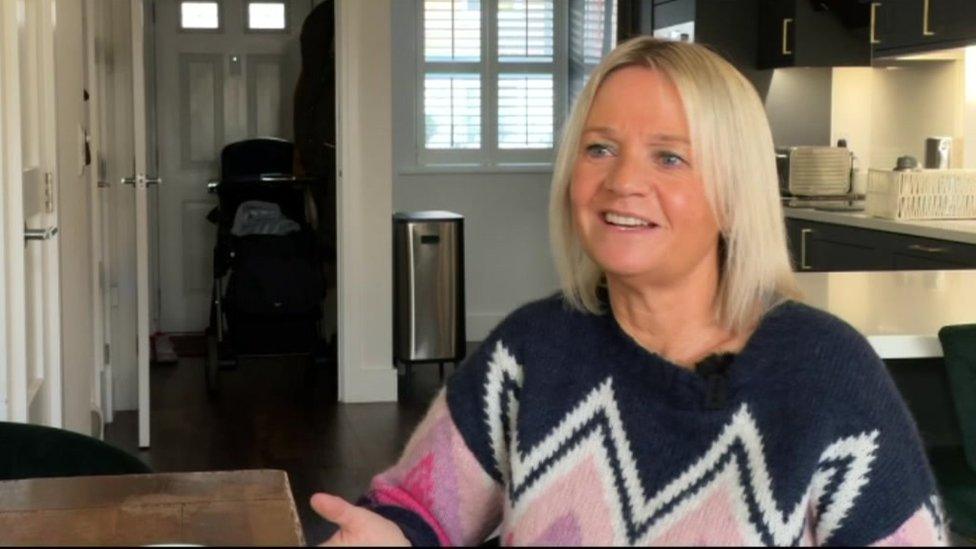
Mandy Parker, from Dartford, has had a radical hysterectomy to remove the disease
Mandy Parker, from Dartford, was diagnosed with stage one cervical cancer in 2015, she urged all those eligible to have the vaccine.
"As soon as you hear you've got cancer, you're thinking, 'am I going to die?'
"It was horrendous," she said.
"If you can have a vaccine that protects you against a lot of the high-risk cervical cancers, why wouldn't you have it done?"

Follow BBC South East on Facebook, external, on Twitter, external, and on Instagram, external. Send your story ideas to southeasttoday@bbc.co.uk, external.
Related topics
- Published4 November 2021
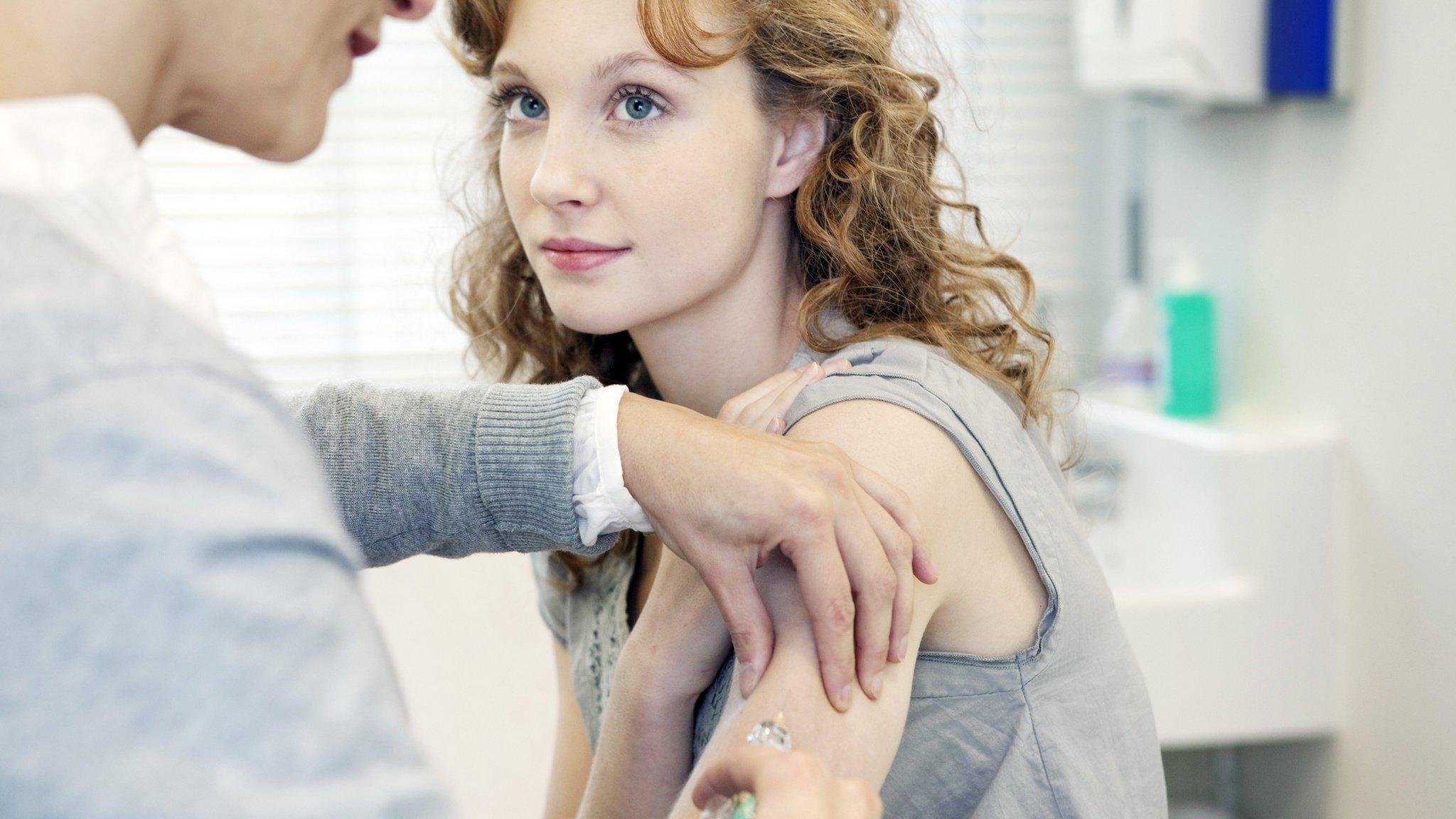
- Published5 August 2022
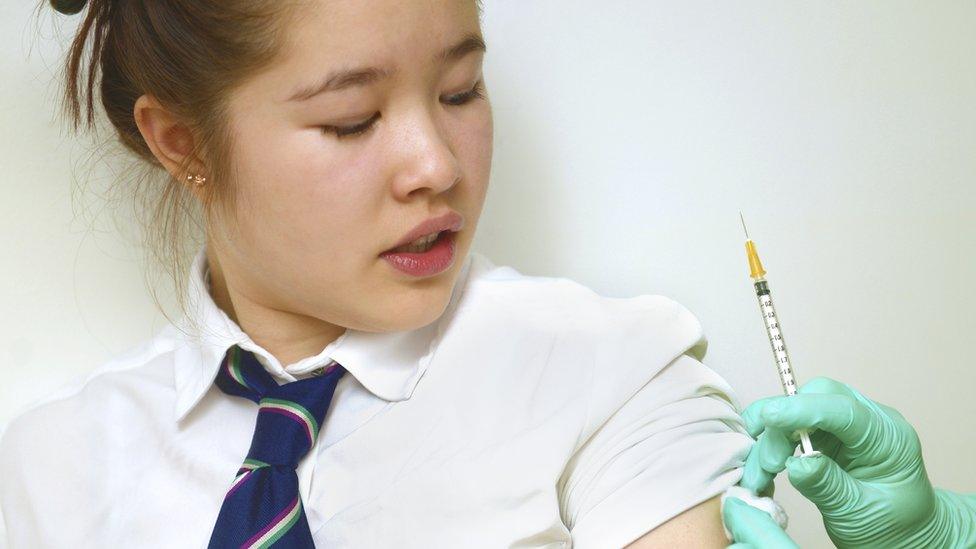
- Published4 June 2015
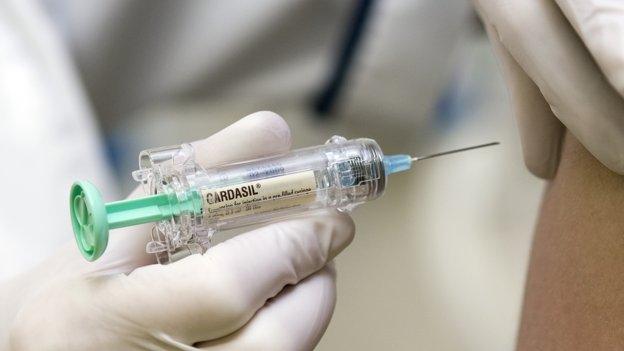
- Published4 November 2021
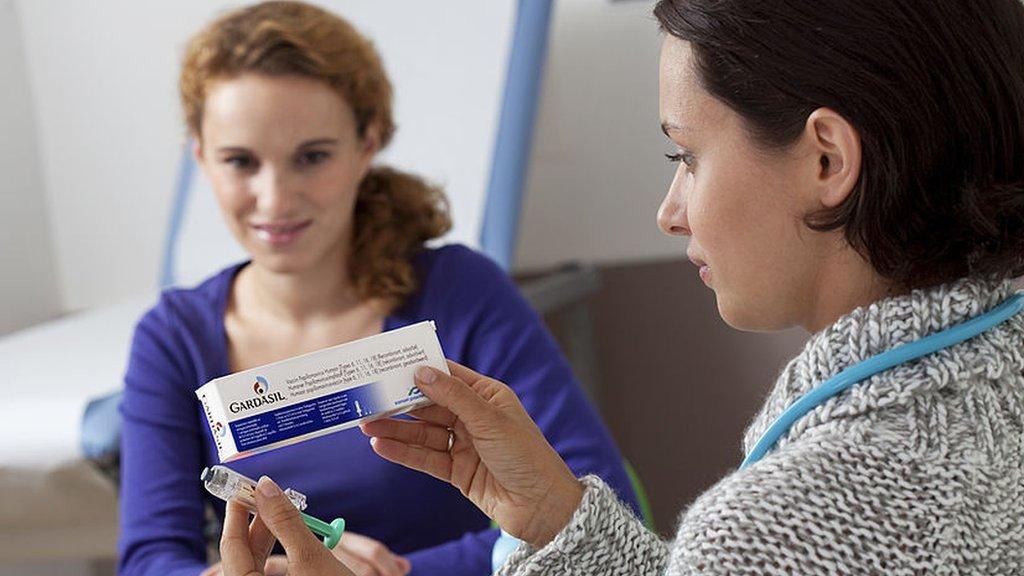
- Published2 March 2022
